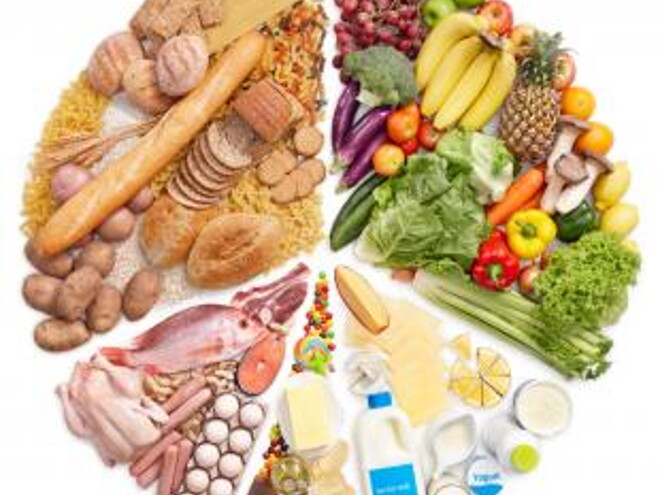
Proteins
Proteins play an essential role in pregnancy, as they are needed in the "construction" of the baby. Should they be consumed in greater amounts during these nine months and what are the best sources of proteins?
What are proteins good for?
Proteins are important for cell construction and renewal. In total, during the entire course of your pregnancy, you will need more than 925 g. To get a general idea, this would represent more than 3 kilograms of steak (divided, that is, over the whole period of pregnancy)!
After the first few weeks of pregnancy, the mother's body adapts to preserve this stock and to put aside what the fetus needs. The quantity of proteins used by the baby increases over the months: 0.7 g per day during the first three months, 3 g per day during the second three months and 6 g per day during the third three months.
On my plate
Varied and balanced nutrition will allow you to cover your protein needs naturally (about 60 g / day). If you consume excessive proteins, they will be naturally eliminated. But you should pay attention to the calories and lipids contained in those two enormous steaks you are about to devour! It would be better to limit the excess.
There are two types of proteins:
- animal proteins, which are found in meat, fish, eggs, milk and dairy products;
- vegetable proteins, which come from cereals (rice, wheat, maize, oats, barley, etc.) and legumes (soya, lentils, beans, etc.). These are termed "incomplete", as they do not contain any essential amino-acids, unlike animal proteins. Thus legumes are low in methionine but rich in lysine. The reverse is true for cereals. The two groups will complement each other when eaten together! A good ratio would be 2/3 cereals and 1/3 legumes.
Our practical suggestions
- To meet your protein requirements, you can eat 100 to 150 g of meat or fish or 2 eggs every day, plus 3 to 4 portions of dairy products (a glass of milk, a tub of yogurt, portion of a cottage or other cheese, etc.
- Alternate the sources of animal proteins: have fish one day, followed by meat the next and eggs the day after that.
- Also consume vegetable proteins every day
- Make use of the fact that animal proteins and vegetable proteins complement each other. When you are not going to have meat at a meal, put a plate of rice and lentils on the menu, or some couscous and chickpeas.
- If you are a vegetarian, make sure that you consume sufficient fish, eggs and dairy products. Some vegetarians also leave out fish, which means that they have to concentrate on eggs and dairy products. On days when you are not eating fish, combine cereals and legumes to meet your amino-acid needs. To avoid an iron deficiency (the main source of iron is meat), make use of other sources: eggs, legumes, leafy vegetables, dried fruit, etc.. Combine them with foods that are rich in vitamin C, which favors the absorption of iron.
If you are a vegan, i.e. if you do not consume any foods of animal origin (meat, fish, eggs, dairy products), there is a high risk of developing a protein, iron or vitamin B12 deficiency. In this case, it is better to consult a doctor or a dietician to obtain some advice.
Opinion
Did you know?
Protein-rich foods often contain fats, but not all of these are of the same quality. Omega-3 fats, which promote the cerebral development of the fetus, are to be preferred. They are particularly found in fatty fish, i.e. mackerels, sardines, tuna or salmon.

